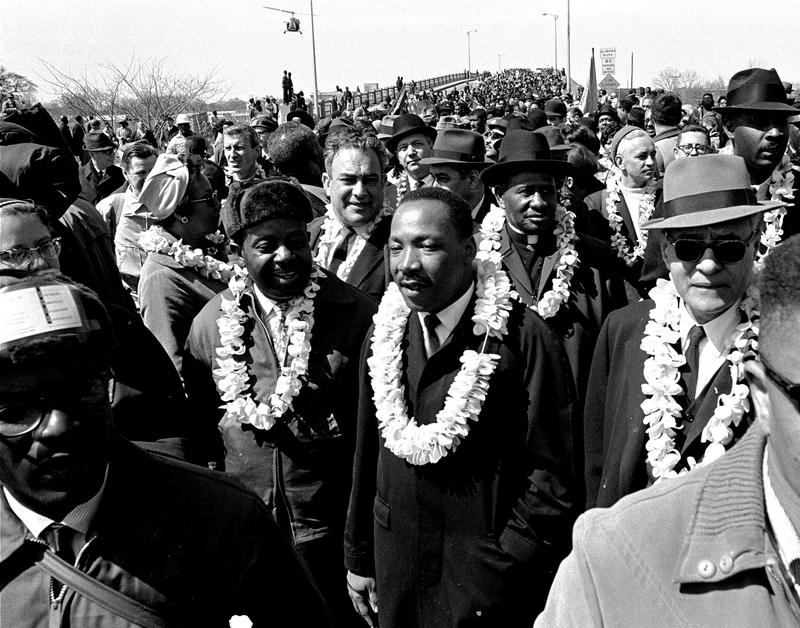
Dr. Martin Luther King Jr. is often memorialized as a great public intellectual, orator, and civil rights leader. But the important skills that don't often make headlines — his mastery of political and media strategy — are some of the most important.
The 1960s civil rights movement took place just as television news was coming into its own. Alexis Madrigal, staff writer for The Atlantic, says that many believe it was journalists who brought civil rights to the fore by broadcasting the horrors of segregation to a national audience. But this downplays how King meticulously planned his marches and events so that he controlled the broadcast narrative.
"Like Little Rock Central High School: the children are going to walk in through these crowds of angry white people. These children who have been trained, who know what they're doing," Madrigal tells WNYC's Jami Floyd. "And that moral drama, that picture that you see there, is going to be worth as much as a lot of [desegregation] policy considerations."
For the full conversation, click "Listen."
